We are so pleased to bring you this Q&A with the brilliant and gorgeous Leila Aboulela.
14 years ago, the Sudanese author made history when she won the inaugural edition of the Caine Prize for African Writing.
She’s gone on to publish a short story collection titled Colored Lights (2001), in addition to two critically acclaimed novels — Minaret (2005) and Lyrics Alley (2011), which won the Scottish Book Awards.
In this lovely interview, she takes us back to the first Caine Prize ceremony and tells us what it was like inaugurating what would become one of Africa’s most prestigious literary prizes.
She also comments on contemporary African fiction and leaves the five authors shortlisted for the 2014 edition of the prize with a sound word of advice.
Enjoy!
Can you tell us what the inaugural edition of the Caine Prize was like? What was the general feeling about this new prize breaking into the global literary scene and being hailed as the “African Booker?”
In some ways the inaugural prize was low-keyed; hardly any attention, for example, was paid to the announcement of the short-list. It was only when the short-listed writers arrived in London, for the week’s events culminating in the award dinner at Oxford, that the excitement really started. All the major UK newspapers reported the announcement of the winner and there was coverage from the BBC World Service. With few exceptions, African literature was marginalized in those years, perceived to be of niche or academic interest and not attractive to the general reader. The expectation was that the prize would break through these assumptions in order to widen readership and this was very much welcomed. A few days after the prize dinner in Oxford, we all flew to Harare to take part in the Zimbabwe Book Fair and there was large, official award ceremony and dinner hosted by the Caine Prize.
What was it like arriving in Zimbabwe to participate in this brand new initiative for African writing?
It was hugely exciting. My husband and daughter came with me and she actually turned two the day after our arrival. Harare reminded me of Khartoum and I enjoyed my time there. The first person I met in the lobby of the Monomotapa Hotel as we were checking in, was Yvonne Vera. She had edited Open Spaces, the anthology which contained my winning story, and she was warm and encouraging. She gave me excellent advice which I still hang on to today. She said, “As a writer, you lead and your readers will follow.” There was a lot of excitement at the book fair about the new prize and it was especially apt and meaningful to be awarded the prize in Africa, during such a significant literary event as the Zimbabwe Book Fair.
Looking back, do you think winning the prize made an impact on your writing career?
It certainly did. It gave me greater confidence in myself and it gave my work more exposure. From a practical point of view, it speeded up the publication of my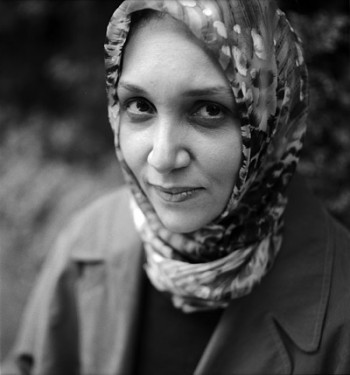 short story collection Coloured Lights which included my Caine winning story. It also enabled me to get a deal with a London publisher for the publication of my second novel. Before winning the prize, I was published by a small university press. Also after winning the prize, the Heinemann African Writers Series published an imprint of my first novel The Translator for sale in Africa.
short story collection Coloured Lights which included my Caine winning story. It also enabled me to get a deal with a London publisher for the publication of my second novel. Before winning the prize, I was published by a small university press. Also after winning the prize, the Heinemann African Writers Series published an imprint of my first novel The Translator for sale in Africa.
Generally speaking, what do you think is the significance of prizes in a writer’s life and work? There is a ‘stamp of approval’ effect, for the public there is a highlighting of a particular writer or a particular work from among others and (so important nowadays for widening readership) there is greater publicity. The significance of prizes can’t be overestimated. They can make or break a career. Unless you are a best-seller, you are judged by the prizes you won or were short-listed for.
Your winning story is “The Museum.” Ben Okri, who was one of the judges, describes the story as “moving, gentle, ironic, quietly angry and beautifully written.” Do you ever go back to that story? Does is occupy a special place in your body of writing?
It meant a great deal to me that Ben Okri, of all people, was the Chair of the judges and I very much appreciated his comments. The Museum has been more anthologized and read than any other of my stories. Ironically, it never was my favorite story. I never particularly liked the characters and I felt distanced from them. My favorite story at the time was The Ostrich, {HERE} but it didn’t meet with the same success. I suspect that The Museum was artistically better developed and more mature.
Back in 2000, Okri could say to the Guardian readership: “I recommend a general interest in African writing to widen taste and see how other people live, dream, and overcome.” It appears to me that today African writing is so ubiquitous that it is hardly necessary to make such an exhortation. What do you think?
I wish I could fully agree. Within literary and academic circles, perhaps, but for the average reader in the West, an African novel can still means one written by Wilbur Smith or Alexander McCall Smith. Just a couple of months ago, The Telegraph newspaper listed the Ten Best Novels About Africa with Barbara Kingsolver’s The Poisonwood Bible making the list at the expense of anything by Ngugi Wa Thiog’o or Nuruddin Farah.
Which contemporary African novelists inspire you most?
I have always been inspired by Ahdaf Soueif. Her breakthrough novel In the Eye of the Sun is The Golden Notebook of the Arab woman. Soueif brought the North African novel firmly from the village into the elegant city apartments of the chattering classes and that was a breath of fresh air and a dazzling step forward. In completely different ways, Hisham Matar and NoViolet Bulawayo are exciting, excellent writers. I am also a huge fan of Sefi Atta, her work is always distinctive and unforgettable. The Sudanese writer Amir Taj Elsir writes in Arabic but he is a worthy successor to Amos Tutuola. His bizarre and delightful novel The Grub Hunter has recently been translated into English and published by the AWS.
More recently, there has been a lot debate about what constitutes an African writer. There are those who don’t want to be called African writers because, they claim, it is a reductive term. There are those who complain that certain individuals called African writers are not African enough–case in point: Tope Folarin, the Nigerian-American, who won the Caine Prize last year. What’s your thought on this age-old issue of the African writer’s ambivalence toward national identity?
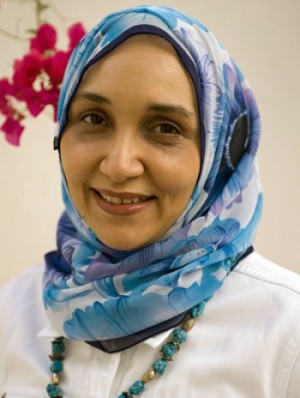 We need to ask ourselves why is it that being an American writer, a European writer or an Arab writer is not reductive but yet being an African writer is perceived to be so. If the market or the literary establishment is ghettoizing or infantilizing African literature then that is what needs to change rather than how African writers describe themselves. As for being not African enough, I suspect that when people make this accusation they are trying to say something else, more subjective, as in not ‘my kind of African’. This is a denial that there are an infinite number of ways of being African, it is not a monolith and one of the exciting things about literature is just how much it challenges our assumptions of national identity by zooming in on cultures within cultures and exposing fluid boundaries.
We need to ask ourselves why is it that being an American writer, a European writer or an Arab writer is not reductive but yet being an African writer is perceived to be so. If the market or the literary establishment is ghettoizing or infantilizing African literature then that is what needs to change rather than how African writers describe themselves. As for being not African enough, I suspect that when people make this accusation they are trying to say something else, more subjective, as in not ‘my kind of African’. This is a denial that there are an infinite number of ways of being African, it is not a monolith and one of the exciting things about literature is just how much it challenges our assumptions of national identity by zooming in on cultures within cultures and exposing fluid boundaries.
Adichie caused quite a bit of a controversy last year when she said: “I suppose [the Caine Prize] is a good thing, but for me it’s not the arbiter of the best fiction in Africa. It’s never been.” What do you think of such a statement? If the Caine Prize is not “the arbiter of good writing in Africa,” what is it then? Do you care to comment on what you think is the role of the Caine Prize, or any prize for that matter, in the contemporary African literature scene?
The Caine Prize focuses on the short story rather than the novel and, over time, it has developed a very effective process of discovering and nurturing new talent. At the moment there is no prize that is awarded to the best African novel of the year regardless of whether the writer is established or a first-time novelist. It would be a welcome thing if such a prize was set up. The Man Asian Prize, for example, short-lists writers such as Orhan Pamuk and Amitav Ghosh, sadly we don’t have an African equivalent. Most of the newly established prizes such as the Etisalat, the Kwani? Manuscript and the Commonwealth are dedicated to new writers. For unpublished, unknown writers this is excellent and African literature will benefit from all this energy and dedication by moving further into the mainstream.
Any words of encouragement to the five authors shortlisted for the 15th edition of the Caine Prize?
If you win, remember there will be another winner next year taking the limelight. So make the most of this year in terms of connections and publication possibilities. Push with all your might.
If you don’t win, go online and see how well previous Caine Prize short-listed authors have done. In many cases, they have had greater success that the winners.


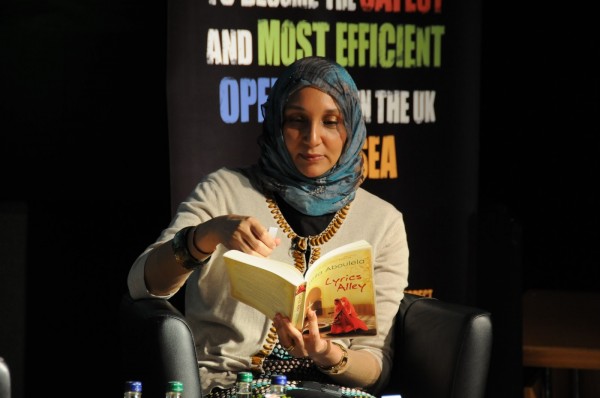

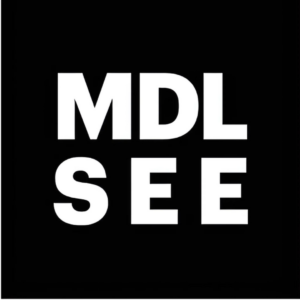
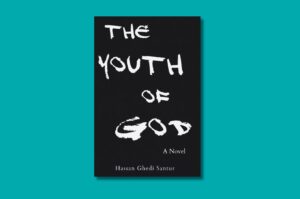




News…. | Leila Aboulela July 16, 2014 15:11
[…] Back to the First Caine Prize - Exclusive Interview […]